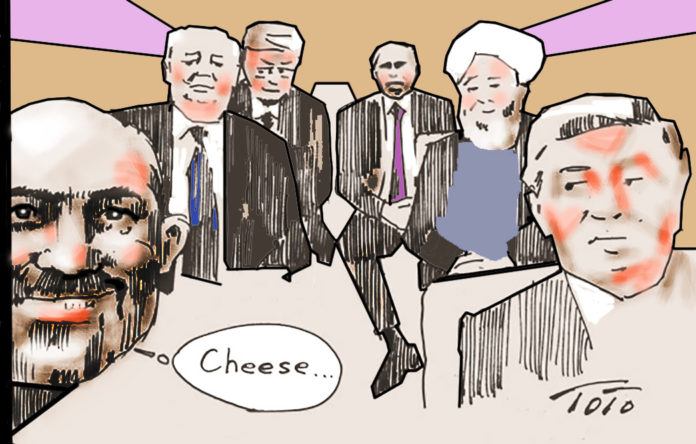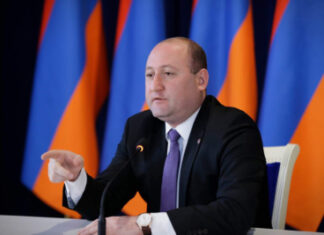Armenia presided over the Eurasian Economic Union (EEU) supreme summit, which began on October 1 in Yerevan. Much background politics and theatrics were at play.
The session took place on the heels of Prime Minister Nikol Pashinyan’s lackluster tour of the US; indeed, a crowd of 30,000 was anticipated at the Los Angeles rally. There were barely 6,000 enthusiastic expats who showed up, to whom the prime minister was profusely grateful. No prominent political figure met the Armenian leader, despite fanfare that Armenia had abandoned its strategic ties with Moscow, leaning Westward.
His photo opportunity at the halls of the United Nations headquarters with President Trump hardly amounts to a political success; the photos are pro forma.
Back home, some speculations and apprehension anticipated the EEU session, where in addition to the regular members of the organization, Armenia had invited the heads of Iran, Moldova and Singapore, which expanded the economic potentials and parameters of the organization.
During a previous session of the EEU, which had taken place in Armenia, that country’s then-President Sultan Nazarbayev had snubbed the Armenian leader and dispatched his representative to the session. At the same summit, Belarus’s President Alexander Lukashenko was outright dismissive of Pashinyan, if not insulting.
During the October 1 session, a drama was brewing with President Vladimir Putin’s anticipated participation. Russian media had signaled the Kremlin’s displeasure regarding the Velvet Revolution in Armenia, and social media in Yerevan was abuzz with gloom and doom.










